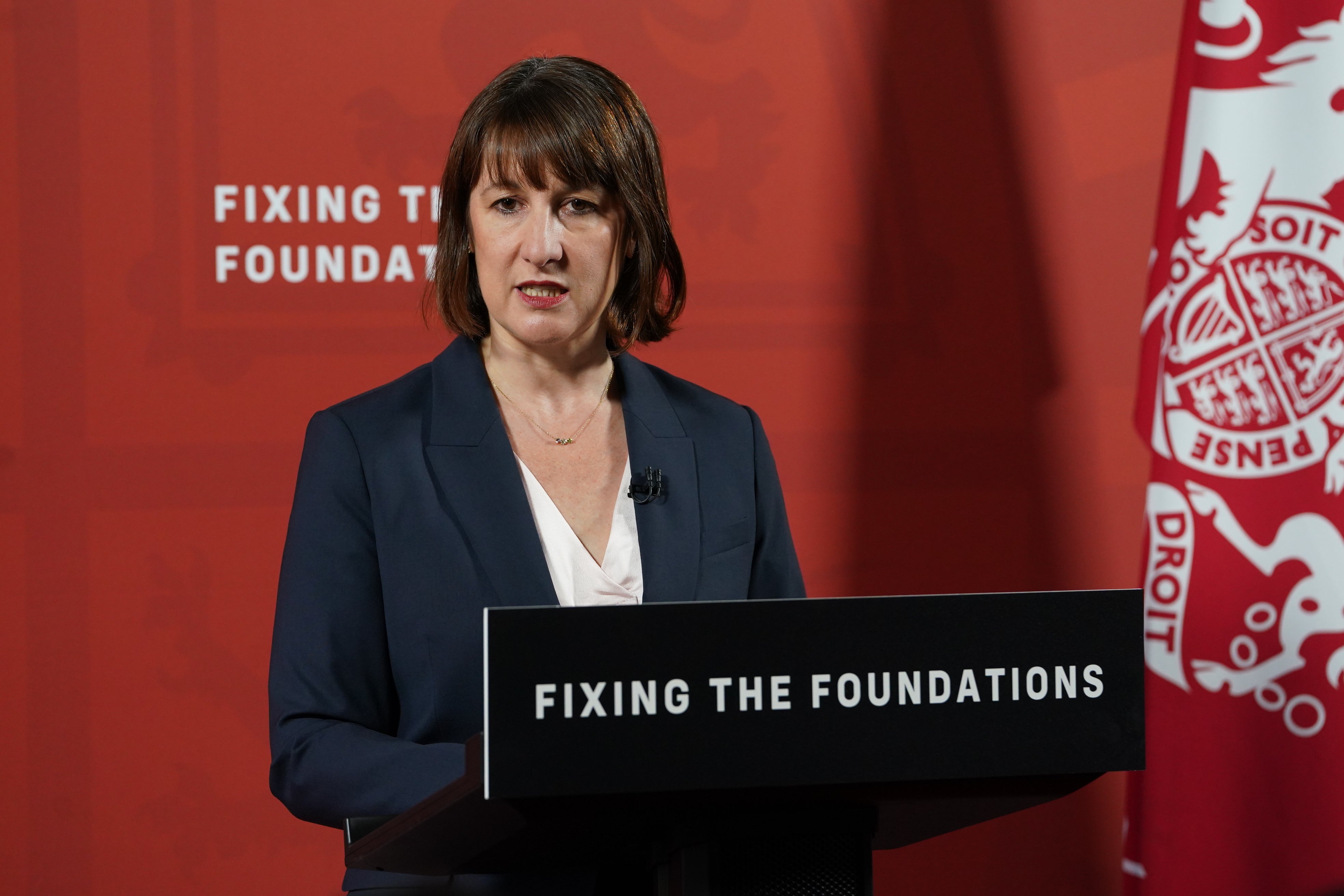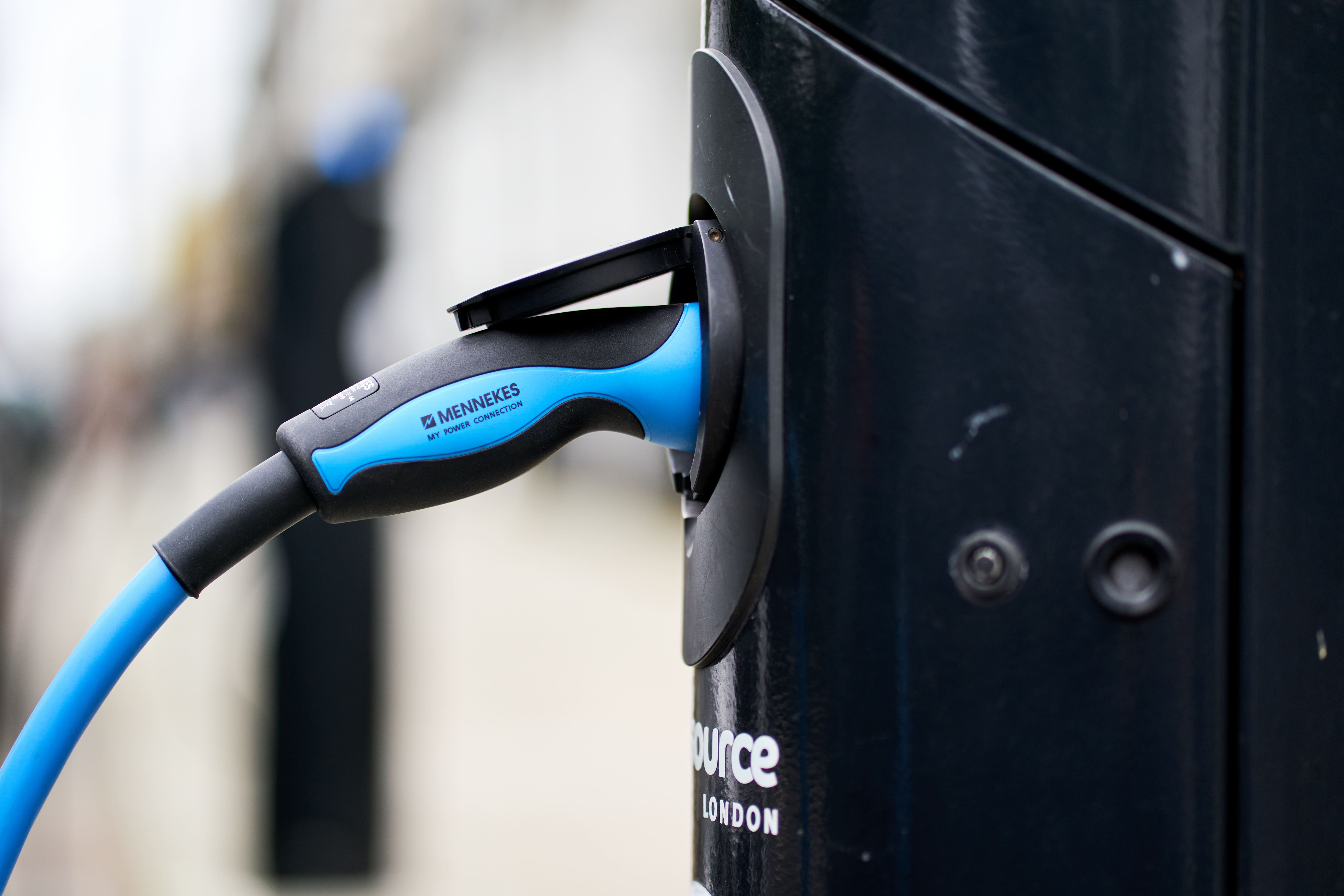Rachel Reeves under pressure to scrap £2k electric car tax
It comes amid mounting concern over how the car industry will cope with current plans to boost the number of electric vehicles
Your support helps us to tell the story
From reproductive rights to climate change to Big Tech, The Independent is on the ground when the story is developing. Whether it's investigating the financials of Elon Musk's pro-Trump PAC or producing our latest documentary, 'The A Word', which shines a light on the American women fighting for reproductive rights, we know how important it is to parse out the facts from the messaging.
At such a critical moment in US history, we need reporters on the ground. Your donation allows us to keep sending journalists to speak to both sides of the story.
The Independent is trusted by Americans across the entire political spectrum. And unlike many other quality news outlets, we choose not to lock Americans out of our reporting and analysis with paywalls. We believe quality journalism should be available to everyone, paid for by those who can afford it.
Your support makes all the difference.Rachel Reeves is under pressure to scrap plans to impose a luxury car tax on electric vehicles, amid fears the levy could make the cars unaffordable and undermine the government’s net zero ambitions.
Electric vehicles registered from 1 April will be subject to an additional levy, known as an “expensive car supplement”, if priced above £40,000.
The surcharge will cost drivers £425 per year for five years, from the second to sixth years of a car’s lifespan – meaning drivers will have to shell out more than £2,000 for the levy, which applies even if the vehicle’s ownership changes hands.
Since 2020, zero-emission vehicles have been exempt, but the Treasury is now following through on plans announced by the previous Tory government to tax them.

With EVs typically costing a third more than normal vehicles, a higher proportion of electric cars will be hit by the tax, with hundreds of thousands of drivers expected to be impacted.
Around 70 per cent of new electric vehicles will be saddled with the tax compared to 18 per cent of petrol and diesel vehicles, research by the Society of Motor Manufacturers and Traders (SMMT) indicated.
So far this year, 300,000 electric motors have been bought in the UK, according to SMMT data.
It comes amid mounting concern over how the car industry will cope with current plans to boost the number of electric vehicles and phase out combustion-engines entirely by 2030.
Business secretary Jonathan Reynolds announced a fast-track consultation into the plans last month, saying he was concerned about how policies meant to phase out new petrol and diesel vehicles by 2030 were operating.
The move came after Vauxhall-owner Stellantis said it would close its van-making plant in Luton, putting 1,100 jobs at risk, hitting out at the UK’s zero-emission vehicle mandate.
The SMMT warned the pace of the transition could hit carmakers as demand for zero-emission vehicles “failed to meet ambition”.
Meanwhile, the managing director of Ford UK said the car industry supports targets around electric vehicles but it needs government-backed incentives to boost their uptake by customers.
Stuart Masson, editor of The Car Expert UK, warned that Ms Reeves’ luxury car tax “is not going to help” the adoption of electric vehicles.
He added: “For most people sitting on the fence, the tax won’t change that much. But for a small number it could have a substantial effect on affordability.
“At the time the tax was introduced, £40,000 was probably fair, but all car costs have gone up since then. It should be realigned. The Tories weren’t interested in doing that and neither is Labour.”
The £40,000 threshold has remained unchanged since April 2017 when it was introduced. Had it risen in line with inflation, the tax threshold would be more than £50,000.
Quentin Willson, founder of lobby group FairCharge, said the expansion of the tax will be another reason for consumers not to change their behaviour and switch to electric vehicles.

He said: “We need lower income drivers to have access to EVs – you have to democratise. But the government is giving consumers no incentive to switch at the moment.
“The £40,000 cut-off includes many, many EVs, but there will also be cheaper diesel vehicles not paying it.
“We need to encourage mass adoption, and this is one of the signals coming out of the Treasury that confuses consumers. It’ll be another reason not to change behaviour.”
A Treasury spokesperson said: “As we approach net zero, we want to ensure electric vehicles are affordable which is why, to help keep costs down, we announced at the Budget that we will consider raising the threshold at which electric vehicles pay the Expensive Car Supplement.”

Join our commenting forum
Join thought-provoking conversations, follow other Independent readers and see their replies
Comments